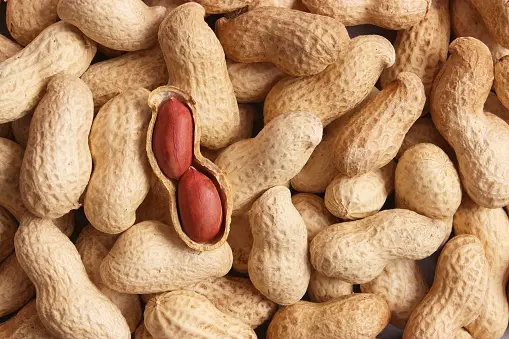Mungfali, also known as peanuts, are widely consumed and offer several potential benefits when incorporated into a balanced diet. However, it's important to note that peanuts are a common allergen, and individuals with peanut allergies should avoid consuming them. Here are some potential benefits and drawbacks of consuming peanuts:
Benefits:
Nutrient-rich: Peanuts are packed with essential nutrients, including protein, healthy fats (such as monounsaturated and polyunsaturated fats), fiber, vitamin E, folate, niacin, magnesium, and manganese. These nutrients contribute to overall health and well-being.
Heart health: The healthy fats in peanuts, particularly monounsaturated fats, have been linked to improved heart health. They help lower LDL (bad) cholesterol levels and reduce the risk of heart disease when consumed as part of a balanced diet.
Weight management: Despite being calorie-dense, peanuts can be a satisfying and nutrient-dense snack option. The combination of protein, fiber, and healthy fats in peanuts helps promote satiety, control appetite, and reduce the likelihood of overeating. Including peanuts in moderation can support healthy weight management.
Antioxidant properties: Peanuts contain various antioxidants, including resveratrol, flavonoids, and vitamin E. These compounds help protect cells from oxidative damage caused by free radicals and may have anti-inflammatory effects in the body.
Blood sugar control: Peanuts have a low glycemic index, meaning they have a minimal impact on blood sugar levels. They can be a suitable snack option for individuals with diabetes or those looking to manage stable blood sugar levels.
Digestive health: The fiber content in peanuts promotes healthy digestion. Fiber adds bulk to the stool, aids in regular bowel movements, and helps maintain a healthy gut microbiome.
Drawbacks:
Allergenic potential: Peanuts are one of the most common food allergens and can cause severe allergic reactions in individuals with peanut allergies. It's crucial to avoid peanuts and peanut-derived products if you have a known allergy.
High calorie content: Peanuts are calorie-dense, and consuming them in excess can contribute to weight gain. It's important to practice portion control and incorporate peanuts into a balanced diet.
Aflatoxin contamination: Peanuts are susceptible to aflatoxin contamination, which is a naturally occurring toxin produced by certain molds. Proper storage, processing, and sourcing of peanuts can minimize the risk of aflatoxin exposure.
Omega-6 to omega-3 ratio: Peanuts contain omega-6 fatty acids, which are essential but should be balanced with omega-3 fatty acids. The typical Western diet tends to be higher in omega-6 fatty acids compared to omega-3s. Balancing the intake of omega-6 and omega-3 fatty acids is important for overall health and reducing inflammation.
As with any food, moderation and individual dietary considerations are key. It's always recommended to consult with a healthcare professional or registered dietitian for personalized dietary advice based on your specific health needs and goals.

टिप्पणियाँ
एक टिप्पणी भेजें